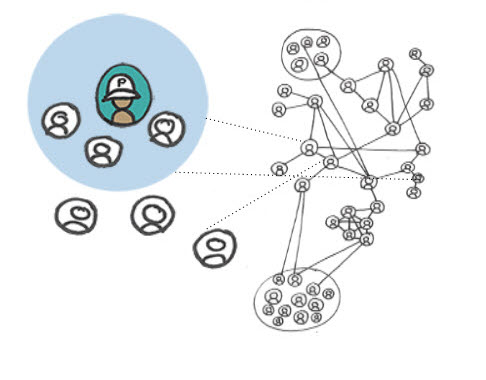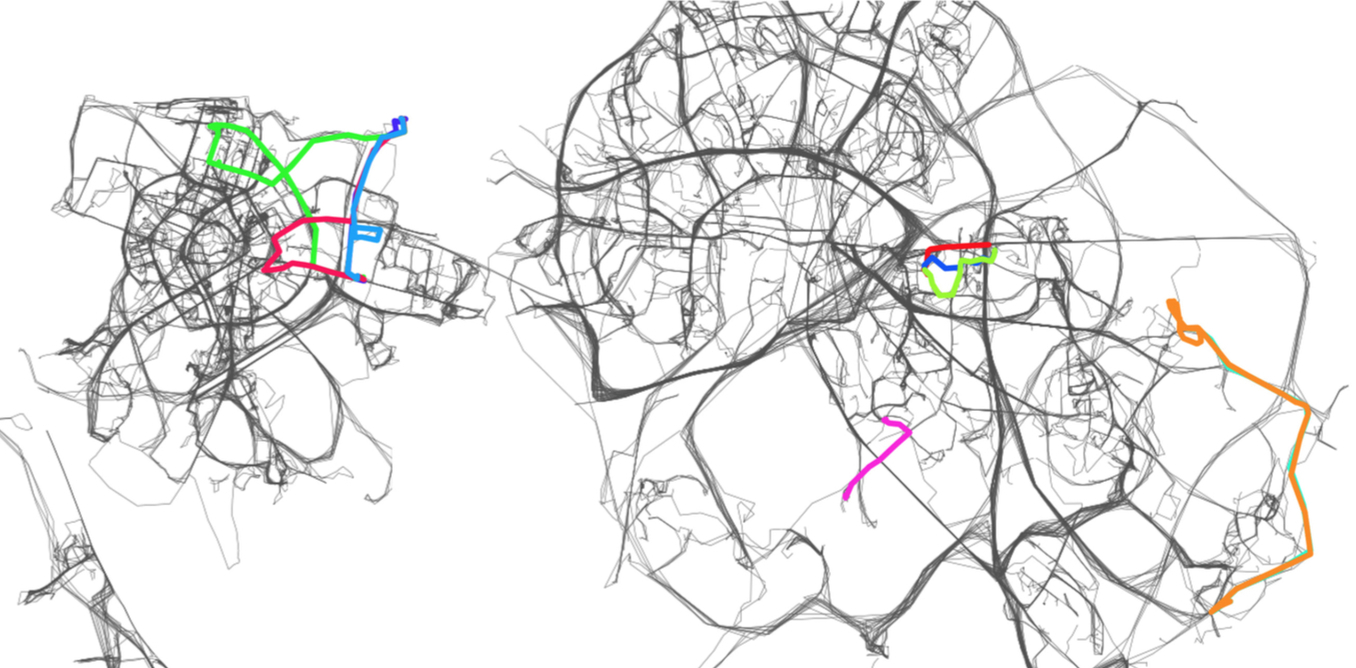At pivotal moments throughout history, technological innovation triggers massive social and cultural transformation. Apparently unrelated developments, which had been gradually unfolding for years, suddenly converge to create changes that are as disruptive as they are creative. We are currently living in a moment of extraordinary complexity when systems and structures that have long organized life are changing at an unprecedented rate. Such rapid and pervasive change creates the need to develop new ways of understanding the world and of interpreting our experience. Mark C. Taylor
I have found myself referring to Mark Taylor’s book The Moment of Complexity: Emerging Network Culture frequently over the past several months. In large part because his thinking offers both reflective and relevant insight to today’s opportunities and challenges. In reality people and organizations have been experiencing these moments of complexity at a velocity that was not anticipated when Taylor’s book was published in 2001. Much the same way Plexus Institute did not fully recognize how addressing complexity in contemporary work and life would become increasingly more relevant, even if not universally understood and practiced.
The most gratifying part of guiding Plexus Institute through its current organizational transformation are the conversations and stories of why complexity thinking matters to our network members and clients. Plexus has changed in a number of small and big ways as the network evaluates how to adapt to toady’s Moment of Complexity. Both longstanding and new network members are generating the next iteration of engagements commitments and insights focused on seeking practical solutions to a steady stream of challenging issues.
 Establishing patterns of coherence and structure with complexity thinking is how Plexus has built a model and practice of “way-finding” in complex adaptive systems. The significance of defining projects, thinking and stories being generated in the Plexus Network as examples of institutional wayfinding came up during a recent conversation with Plexus Catalyst and Board member Mike Taylor.
Establishing patterns of coherence and structure with complexity thinking is how Plexus has built a model and practice of “way-finding” in complex adaptive systems. The significance of defining projects, thinking and stories being generated in the Plexus Network as examples of institutional wayfinding came up during a recent conversation with Plexus Catalyst and Board member Mike Taylor.
As background, Mike Taylor is currently developing a model (The Unified Theory of Meaning Emergence) for healthcare that integrates the mathematics and language of complexity science by identifying and clarifying complexity concepts that can be strongly tied to an accepted mathematical process. This theory redefines health as a minimization of predictive error and proposes that predictive error is minimized through a unified, multi-level, system wide process of meaning emergence. This theory may be the basis for a greater understanding of health across all scales and a platform for new interventions in nursing and health.
Mike and I spoke several times in preparation for how best to invite feedback and collaborative conversations within the network. I recognized that this theory offered an even broader perspective when applied to any complex adaptive system.
Falling between order and chaos, the moment of complexity is the point at which self-organizing systems emerge to create new patterns of coherence and structures of relation. Mark C. Taylor
So how does Mike Taylor’s theory connect to Mark Taylor’s book and way-finding? In this Moment of Complexity, many people and organizations are experiencing difficulty in wayfinding today’s chaotic and disruptive environments. Although way-finding has traditionally been used to describe spatial problem solving, it works equally well as a concept for navigating complex human environments (systems). Guiding people through a complex physical environment requires continual updates for safe and efficient navigation. What happens when the environment is rapidly changing and the guide can no longer be efficiently updated?
Mike Taylor offered the following. “The fact that patriarchy is going away is a big, big, big deal because that’s how human systems have always been organized. If we release or are forced to release authority how do we maintain enough structure and resiliency to support our most established systems’ changes in a generative and iterative process versus in a disruptive and extreme way? One of the biggest hurdles to understanding why patriarchy is so hard to influence is because most people are still looking for an authority to re-establish the “coherence and structures” that keep things moving smoothly. Increased engagements, knowledge and empowerment can only move the change process so far before it demands new “authority” to take over.”
 As anti-patriarchy movements like #MeToo and #BlackLivesMatter are creating the conditions for powerful new structures and relations to emerge in the systems in which they exist, how does Plexus take a lead in developing newer models and options for understanding and practicing adaptive change?
As anti-patriarchy movements like #MeToo and #BlackLivesMatter are creating the conditions for powerful new structures and relations to emerge in the systems in which they exist, how does Plexus take a lead in developing newer models and options for understanding and practicing adaptive change?
Accepting the implications of complexity means giving up the comfort of defined outcomes for the groups we work with, even though definitive solutions were never possible in complex adaptive systems. What we do know are as follows:
- Change is the only constant
- Our actions and choices really do make a difference in the short and long term
- Our individual welfare is dependent on the welfare of others in the system and
- The purpose of answers to our questions is to generate better questions
These are the complex challenges and opportunities that deserve the insights of Plexus “Thinkers” who are well positioned to engage with the plethora of models, theories, and still emerging thoughts about complexity science and human systems. Making this rich harvest of human thinking, innovation and sense making widely accessible is part of our way-finding journey. An important part of the purpose of Plexus is to hold the history of this journey in stories we are creating.
This is a moment of complexity.
Plexus is exploring how to support cross-disciplinary projects that address new concepts of authority as adaptive expertise generated within the system and understood by the patterns that form coherence and structure throughout the system.
____________________________________________________
Taylor shares more context of how his theory informs the increasingly complex topic of nursing, health and healthcare in Talking Back to Maslow: Nursing, Complexity and the Science of Compassion – see recorded Pop-up Conversation
In this Pop-Up Taylor discussed the complexity science basis of his theory and how a different view of current thinking and literature in the field will offer critical insights into new practices. Taylor also covered an overview of complexity and health, the structure of the theory, implications for health services and social evolution, and potential problems and issues. You are invited to access this article for a preview of his exciting new work.

